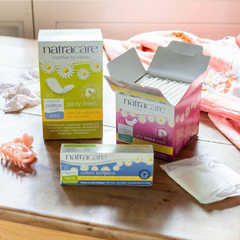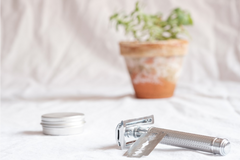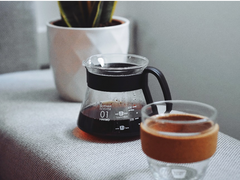The following post is a guest blog post written by our friends at Natracare.
Being a sustainable consumer can feel like a lot to take on – especially when single-use plastic is hidden almost everywhere you look. And it doesn’t take much thinking about the climate crisis for our eco-anxiety to kick in, making us want to give up on the whole thing. But, at Natracare, we believe that the little things count too, and they’re a great place to get started regardless of your eco-warrior (or worrier) status.
If you’re thinking about becoming that little bit more planet-friendly, here are six small swaps that might help you to get started:
Reusable Cutlery
One of the greatest joys in life is eating incredible food that somebody else has prepared for you. But dining out isn’t always so delightful for the planet – especially when it involves disposable cutlery that will never biodegrade. Avoid having to reach for that dreaded tray of plastic spoons by carrying a Sasstainable cutlery set in your bag. The set includes all the cutlery you could possibly need - whatever cuisine you fancy – you can even get one with a biodegradable toothbrush, so you can look after your pearly whites sustainably, too!
Biodegradable Period Products

Did you know that one single pack of conventional period pads has the equivalent amount of plastic as five carrier bags? “That’s okay, I use tampons,” you might be thinking - but sadly they’re also plastic-ridden. From the applicators, to the string, to the synthetic veil your tampon is wrapped in, plastic can often seem unavoidable when you get your period. Luckily, there are plenty of more sustainable options out there, including our own! At Natracare, we make vegan period products that are plastic-free, biodegradable and compostable, so that your period can tread a little lighter, at least on the planet.
Activewear
Whether you love lifting weights, or prefer a run in the great outdoors, keeping active is fantastic for your mental and physical health. But the clothes we wear and sweat in often come from unsustainable sources, meaning your workout routine might not be so good for the planet. TALA is different – it’s made from 92% upcycled materials through sustainable processes – you can even plant the labels!
Safety Razor

Whether you choose to remove it or let your hair grow is entirely up to you, but if you prefer the smooth-as-a-baby’s-bottom feel, your razors could be creating piles of unnecessary waste. What you may not realise is that we recycle 90% of our waste in the kitchen, but 35% of us don’t always recycle our bathroom plastics.Why not swap out your plastic disposable razor for a safety razor, like the ones by Bareaya? Safety razors are a great investment for your long-term shaving needs, helping you to decrease the plastic waste your bathroom habits produce.
Plastic-free wipes
Taking off your makeup after a long day or giving your skin a refresh after a tough workout can often have you reaching for a makeup wipe – but did you know most conventional wipes aren’t biodegradable? Natracare makeup wipes are plastic free and biodegradable, so you don’t have to find a whole new skin routine to make it sustainable. Plus, they smell gorgeous… if we do say so ourselves! Just remember – they go in the bin, don’t flush them down the loo.
Reusable coffee cup and water bottle

Not only is carrying a reusable cup and water bottle with you good for the planet, it’s also good for your purse strings. Most coffee shops now offer a discount for bringing your own reusable coffee cup, and taking tap water with you means you’ll never have to fork out on bottled water again! To save your money, and the planet, we recommend investing in these essentials.
Natracare was launched in 1989 by Susie Hewson, with the world’s first organic cotton tampon. 30 years later, we’re still campaigning for better periods – for our bodies and the planet!
 |
Sophie is a gen-z plant, planet and animal lover, living in a seaside town near Bristol where she works as Natracare’s Social Media and Digital Marketing Executive. She’s a University of Southampton alumni and has worked in the sustainability sector since her graduation in the summer of 2019. |
